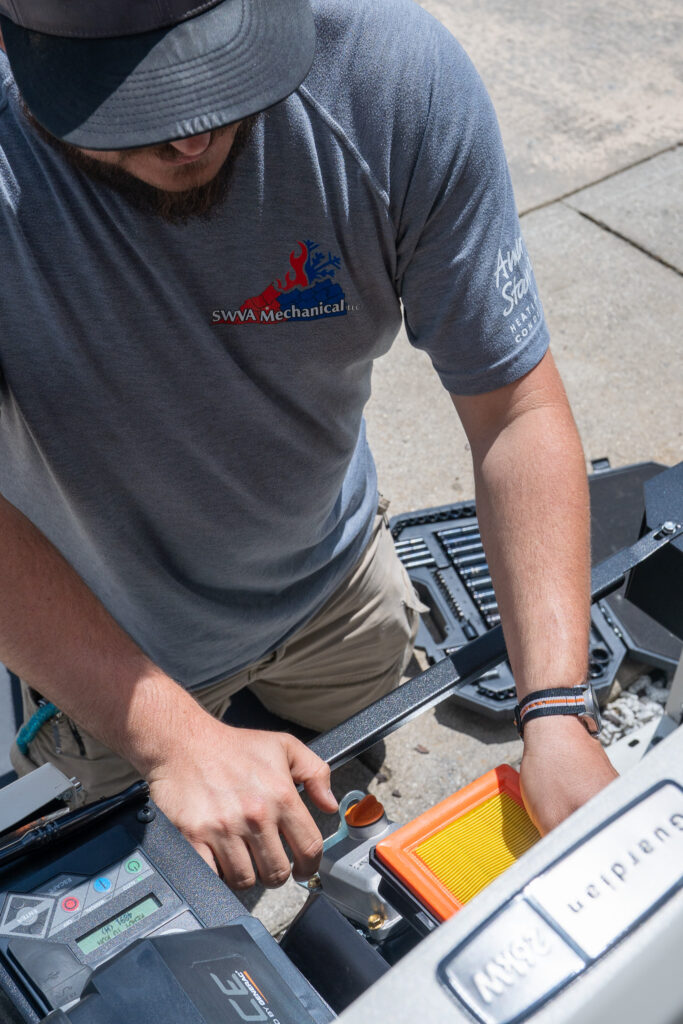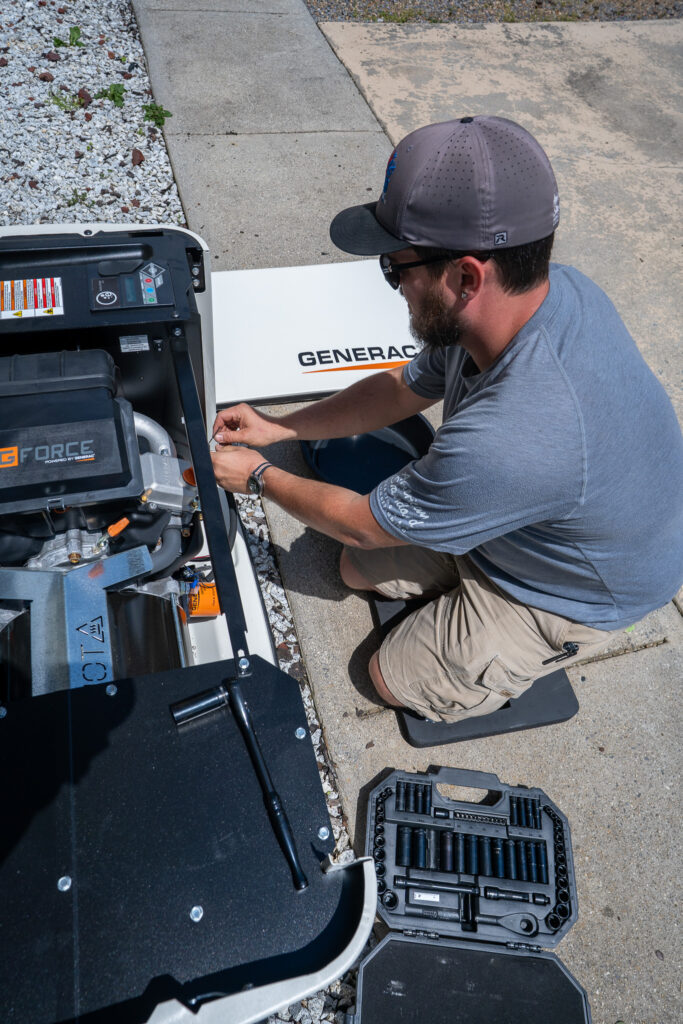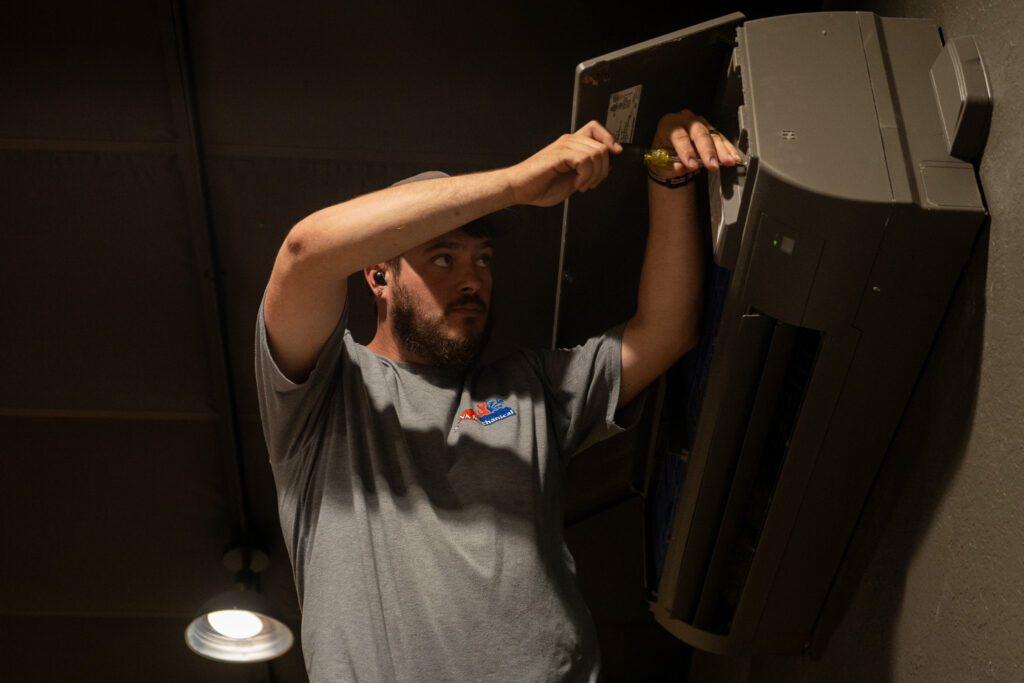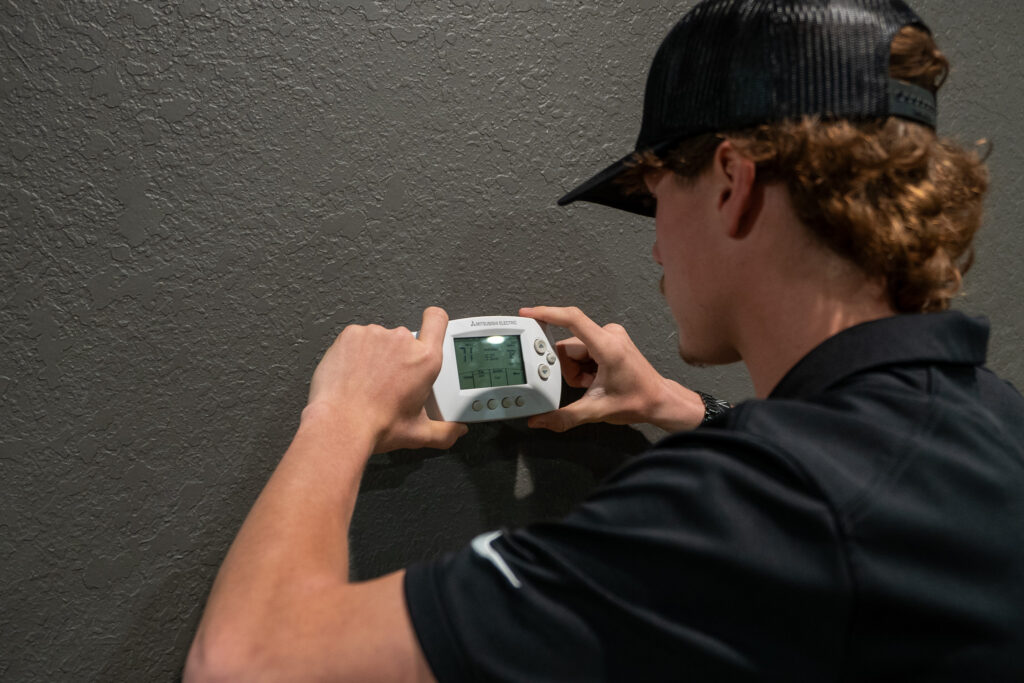When a critical system in your home or business fails, it often happens outside of standard nine-to-five business hours. A furnace that goes silent on a freezing winter night, a walk-in cooler that stops humming during a holiday weekend, or a backup generator that refuses to start in the middle of a storm can create immediate feelings of stress and uncertainty. In these moments, every home and business owner is faced with the same pressing question: is this a true emergency that requires an immediate after-hours call, or is it a problem that can safely wait until morning?
Knowing how to assess the urgency of the situation is a crucial skill. It allows you to act decisively to protect your family’s safety, your property, or your business’s inventory, while also helping you avoid the higher costs of an emergency dispatch for a non-critical issue. Emergency service is designed for situations that pose an immediate risk and simply cannot wait. This information will provide a clear framework to help you distinguish between a genuine crisis and a standard service issue across your most important mechanical systems, so you can make a confident and informed decision when you need it most.
What Truly Constitutes an Emergency?
Before diving into specific scenarios, it is important to have a clear definition of what constitutes an emergency. A true mechanical emergency is any situation that presents an immediate and significant risk to the health and safety of people, the integrity of your property, or the essential operations of your home or business. It is a problem that, if left unaddressed for even a few hours, could lead to severe, costly, or dangerous consequences.
This includes clear safety risks, such as the smell of natural gas from a furnace, a burning electrical odor from an air conditioner, or the failure of a generator that is powering critical medical equipment. It also includes the imminent threat of major property damage, like a major water leak from an HVAC unit that is flooding a room, or a furnace that has failed in sub-freezing temperatures, putting your home’s pipes at risk of bursting. For a business, an emergency is a failure that could lead to thousands of dollars in spoiled inventory in a walk-in cooler or a shutdown of operations. These are the situations that cannot wait.
Critical Failures: Common HVAC Emergencies
Your home’s heating and air conditioning system is essential for maintaining a safe and healthy living environment, especially during the extreme temperatures we experience in Southwest Virginia. A complete failure during these periods is often a genuine emergency.

A total loss of air conditioning during a severe summer heatwave is a primary example. When temperatures soar, the indoor environment can quickly reach unsafe levels, posing a significant health risk to vulnerable individuals such as young children, the elderly, or family members with certain medical conditions. Similarly, a furnace that stops working during freezing winter conditions is a critical emergency. The immediate concern is not just comfort, but the very real danger of your home’s plumbing pipes freezing and bursting, which can cause catastrophic and incredibly expensive water damage.
Other HVAC issues that warrant an immediate call include any signs of a serious electrical malfunction. If you smell an acrid, burning odor coming from your vents or the unit itself, or if your system is causing your circuit breaker to trip repeatedly, you should shut the system down at the breaker panel and call for help immediately, as this indicates a fire hazard. A major water leak from your indoor air handler or a frozen coil that is causing the unit to make violent, grinding noises are also urgent issues. Allowing the system to run in these conditions could lead to permanent damage to major components like the compressor.
Protecting Your Assets: Common Refrigeration Emergencies
For any business that relies on commercial refrigeration, such as a restaurant, grocery store, or convenience store, a system failure is a direct threat to your bottom line and your reputation. In this context, almost any significant malfunction is an emergency.
The most obvious crisis is the complete failure of a walk-in cooler or freezer. When the refrigeration cycle stops, the clock starts ticking on thousands of dollars of perishable inventory. Every hour of downtime increases the financial loss and the risk of having to discard product due to unsafe temperatures. A sudden spike in the unit’s temperature, even if it is still running, is another critical sign. This indicates a serious problem, such as a failed compressor, a major refrigerant leak, or a malfunctioning defrost system, that will likely lead to a total failure very soon.
Unusual noises, such as loud mechanical grinding, squealing, or banging, often signal that a major component like a fan motor or the compressor is in the process of breaking apart. Likewise, discovering a significant puddle of water or, more seriously, leaking coolant, indicates a problem that requires immediate attention to prevent further damage and potential safety hazards. When faced with these issues, your first priority should be to keep the cooler doors closed as much as possible to preserve the cold temperature. While you might consider moving some high-value items, the most important action is to call for emergency refrigeration service immediately to minimize your losses.
When Backup Power Fails: Common Generator Emergencies
A backup generator is your ultimate insurance policy against power outages, and when it fails to perform its one critical job, it is a true emergency. This is especially true in the rural and mountainous areas of our region, where outages can sometimes be prolonged.
The most clear-cut generator emergency is when the unit will not start or transfer power during an active utility outage. This is the moment you are relying on it, and its failure requires immediate professional diagnosis. Modern Generac units are equipped with advanced self-diagnostic systems. If you see a red warning light or a specific error code on the control panel, it is a signal of a serious fault that needs to be addressed by a certified technician.
Another urgent issue is power that is fluctuating, flickering, or only partially restored. Unstable power from a struggling generator can be more damaging to your home’s sensitive electronics and appliances than no power at all. For any homeowner who relies on their generator to power essential medical equipment, such as an oxygen concentrator or a CPAP machine, any failure of the generator is an absolute emergency. Similarly, for businesses that depend on backup power to run cash registers, security systems, or IT servers, a generator failure means a complete shutdown of operations and warrants an immediate call.
Assessing the Urgency: When It Can Likely Wait Until Morning
While it is crucial to act fast in a real emergency, it is also helpful to recognize situations that, while inconvenient, do not pose an immediate threat and can be addressed during regular business hours. This can save you the expense and stress of an unnecessary after-hours call.
For your HVAC system, if the unit is still running and producing cool or warm air, but just not as effectively as it used to, it can likely wait. This suggests a loss of efficiency, perhaps from a dirty filter or a minor refrigerant leak, but not an imminent catastrophic failure. For commercial refrigeration, a minor temperature fluctuation of just a degree or two, or a bit more frost buildup than usual, are signs that maintenance is needed, but they are not typically a middle-of-the-night crisis as long as the box is still holding a safe temperature.
In the case of your generator, seeing the yellow maintenance light illuminate on your Generac unit when there is no power outage is simply a reminder that it is time to schedule a routine service visit. It is not an indicator of an active failure. Issues that seem to be related to thermostat settings or minor airflow imbalances, rather than a complete system shutdown, are also good candidates for a scheduled appointment. These are important issues to address to prevent them from becoming future emergencies, but they do not require an immediate dispatch.
Your Pre-Call Checklist: What to Check Before Making the Call
Before you make that after-hours call, taking a few moments to run through a simple troubleshooting checklist can sometimes resolve the issue or, at the very least, provide you with valuable information to give to the technician. This can help prevent unnecessary emergency calls for simple problems.
For your HVAC system, always check the thermostat first. Ensure it is set to the correct mode (“Heat” or “Cool”) and that the batteries are fresh if it has them. Next, check your home’s circuit breaker panel to see if the breaker for your HVAC unit has tripped. Finally, check your air filter; a severely clogged filter can cause a system to shut down. For your generator, you can check the main breaker on the unit itself and, if it is powered by propane, verify that the tank has an adequate fuel level.
These simple steps can occasionally solve the problem. However, if these basic checks do not restore function, or if you are dealing with any of the red-alert safety issues like burning smells or strange noises, do not proceed any further. When you are in doubt about the severity of a situation, the safest course of action is always to call and ask. A quick conversation with our on-call staff can help you determine the best course of action.
The Best Emergency Is One That Never Happens: How to Prevent After-Hours Emergencies
The most effective way to deal with an emergency is to prevent it from happening in the first place. The vast majority of after-hours failures, whether in an HVAC system, a refrigeration unit, or a generator, are the result of neglected maintenance. A proactive approach to caring for your essential equipment is the best strategy for ensuring reliability and avoiding the stress and expense of unexpected breakdowns.
Scheduling regular, seasonal maintenance is the cornerstone of this preventative approach. Having your HVAC system tuned up in the spring for cooling and the fall for heating allows a technician to identify and resolve small issues, like a weakening capacitor or a dirty coil, before they can cause a failure during peak season. For commercial refrigeration, a routine maintenance plan ensures that coils are kept clean, refrigerant levels are correct, and all components are operating efficiently, preserving your inventory and your energy budget.
For your generator, regular maintenance is just as critical. A technician can perform a load test on the battery, change the oil and filters, and ensure the unit’s self-test cycle is functioning correctly. By enrolling in a maintenance plan with SWVA Mechanical, you can rest assured that all your critical systems are receiving the professional attention they need to remain reliable when you depend on them the most.
Knowing how to differentiate between a true emergency and a routine service issue is a crucial skill for any home or business owner. The decision to make an after-hours call should always be guided by an assessment of the immediate risk to safety, property, and essential operations. If you are facing a situation that poses a clear threat, from a gas smell or electrical issue to a complete system failure in extreme weather, you should never hesitate to call for immediate help. For less critical issues, a scheduled appointment during normal business hours is often the more prudent and cost-effective choice.
At SWVA Mechanical, we understand that these system failures are stressful and can happen at any time. We want our neighbors in Lebanon and throughout Southwest Virginia to know that we are here for you when you need us most. Our team is ready to provide fast, reliable, 24/7 service for your HVAC, refrigeration, and generator emergencies. We encourage you to save our contact information, and for the ultimate peace of mind, talk to us about a preventative maintenance plan to protect your systems for the future.





